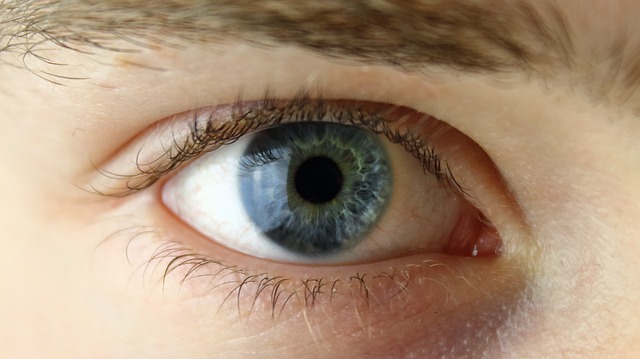 According to social psychologist and microexpressions expert Dr. Mark Frank, eye contact (or lack of) is “one of the most misunderstood aspects of deception”.
According to social psychologist and microexpressions expert Dr. Mark Frank, eye contact (or lack of) is “one of the most misunderstood aspects of deception”.
Many videos, articles, and newscasts suggest that a person’s eye contact and/or eye gaze often times has a hidden meaning: Looking up to the right means someone is making up something. Looking up to the left means they’re remembering something. If someone isn’t looking at you, they’re lying. The list goes on and on.
But how accurate are these claims?
There have been over 30 studies that examined eye contact as a variable when lying and most of them have shown that there is no tell-tale sign when someone is being deceptive.
According to Dr. Frank, 6 of these 30 studies observed gaze aversion- the act of looking away from an object which had been previously focused on. All 6 of the studies concluded that eye contact does not significantly change as a function of lying or telling the truth.
Recent studies have come to the same conclusion. In 2008, Dr. Stephen Porter’s of Dalhousie University published a study called “Lying? The Face Betrays Deceiver’s True Emotions, But In Unexpected Ways”.
Porter concluded that it is indeed the face that gives liars away, but not in the stereotypical ways we believe. To him “it’s not the shifty eyes or sweaty brow or an elongated nose (à la Pinocchio) the lie detector should look for. Instead, other elements of a liar’s face will give them away – ‘cracking’ briefly and allowing displays of true emotion to leak on to the face”.
Yet, despite the overwhelming evidence that eye-contact has nothing to do with lying, a study conducted by over 90 scientists examined over 5,000 people in 75 countries and what they believe about liars. The number one answer across all cultures was the (false) belief that liars will not look you in the eye. This belief goes back almost 3,000 years, to the sacred texts of Hindu culture.
So why does this misunderstanding exist?
There is no simple answer to this complex question, but Dr. Frank alludes that it may be associated with children’s behavior when they lie. He states that eye contact is probably a good clue to deception with younger children – possibly due to the emotion of guilt – but that as they grow older, children learn socially that they have to maintain eye contact in order to lie successfully.
By the time they are adults, most people have learned to make eye contact when they lie. Yet, the belief that eye contact is correlated with deception may still persist.
It has been most rewarding to have found this webpage.
As a Behaviour Detection Officer with the TSA, I can state that you are on target.
Thank you kindly.
Now I read the whole report and don’t quite accept it as an authoritative report. I’ve never believed that shifty eyes was a sign of lying. However, I did believe that uncontrolled movements and touches to the face, shrugs, etc were a good indictation that the person may be lying. Now I know that’s not the be all end all indication of lying but to say they are sterotypical behaviors is a bit unfounded.
I’m curious about your thought on this matter Dr. Matsumoto as I had emailed you once in the past regarding asymmetrical shoulder shrugs/
Lie can’t be detected based on simply one question. You only become master if it when you are in some kind of investigating job such as lawyer, judge or police because they know the truth and ask the criminal so they have seen all kinds of answers and eye contact.
It’s also depend what is at stake? Experiment is not really credible as it doesn’t have any consequences for lying which put the participants at EASE( just some kind a experiment) psychologically so they are more confident mentally.
It would be more interesting to look at the questions itself.
Other thing is overly detailed answer of something as the speaker doesn’t know the truth but liers would have to make it sound convincing as they have to convince themselves first which results in overly detailed or giving too many circumstances or explanation.
Normal nervousness and averting eye contact is genuine than fake one. Ie. If you say someone “I love you” first time there must be some kind of tension present. I would be more worried if its like guy or girl says with extreme comfort “I love you” girl or guy immediately “I love you too!”.
No one is 100% confident so there must be some kind of nervousness be there. Yes, eyes are windows to the soul. May be not crystal clear but for me at least 70% transparent.
Eye contact, a form of non-verbal communication, is a primitive way of communicating.
The difference between humans and neanderthals (and before them) is the ability to voice their concerns through speech and less through primitive ways, like eye contact or other nonverbal communication..
My point is, I would not rely on eye contact/non-verbal communication as a sure fire way to tell if someone is lying or what they are thinking.
Sometimes you need use verbal communication and ask them if they are being truthful.